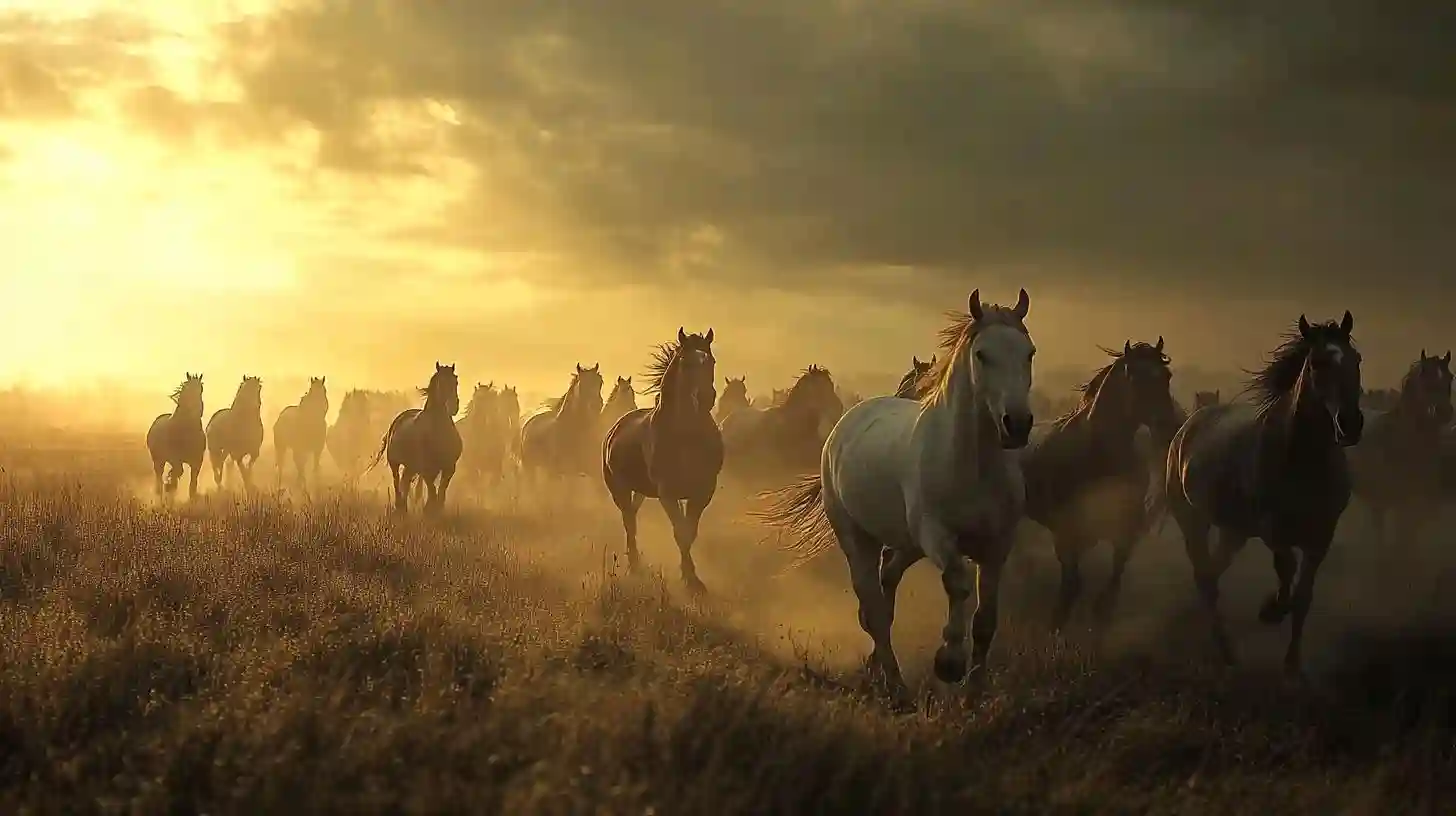
Domesticated horses have played an undeniable role in shaping human history and modern society, transforming the way humans live, work, and interact. The bond between humans and horses stretches back thousands of years, beginning in the central Asian steppes where these majestic animals were first tamed. This relationship proved pivotal in facilitating transportation, agriculture, and warfare, ultimately altering the course of civilizations and economies across the globe.
The introduction of domesticated horses revolutionized transportation, allowing people to traverse vast distances more efficiently than ever before. Before horses were integrated into human life, travel and trade were arduous and slow, generally confined to walking or the use of slower-moving animals. With horses, people could cover greater distances in shorter periods, ushering in the era of long-distance trade routes that connected distant cultures and economies. The Silk Road, for example, flourished as merchants used horses to transport goods between Asia and Europe, giving rise to cultural exchanges that enriched societies and broadened horizons. Additionally, the ease of travel provided by horses enabled ideas, technologies, and innovations to spread rapidly between regions, fostering interconnectedness in human experiences.
In agriculture, the impact of horses cannot be overstated. Once harnessed to plows and other farming implements, horses dramatically boosted agricultural productivity. Their power allowed for faster and more efficient planting, tilling, and harvesting, effectively changing the landscape of food production. Societies that adopted horse-based agriculture saw increases in food supplies, which not only supported growing populations but also enabled the emergence of urban centers and complex civilizations. The ability to produce surplus food meant that more individuals could pursue specialized trades or arts, thus paving the way for advancements in science, literature, and culture.
In warfare, horses quickly became a dominant force on the battlefield. The speed and agility they offered gave armies a significant advantage over foot soldiers. From ancient chariots to mounted knights, the presence of horses redefined military strategies and tactics. Cavalry units could flank enemy forces, execute quick retreats, and control territory with unparalleled mobility. The impact of horsemen in warfare shaped the outcomes of many historical conflicts, leading to the rise and fall of empires. As powers recognized the strategic benefits that horses brought, they invested heavily in breeding and training them, leading to the creation of elite cavalry units that would become synonymous with military prowess.
Beyond agriculture and warfare, horses also fostered social structures and cultural practices that continue to resonate today. Equestrianism became more than just a means of transportation; it developed into an art form and a way of life. Various cultures adopted unique riding styles and horse care techniques, creating a rich tapestry of equestrian traditions. These practices culminated in events like horse racing and rodeos, which not only serve as recreational activities but also reflect local customs and histories. The bond between horse and rider evolved into a symbol of status, strength, and grace in many cultures, inspiring countless works of art, literature, and music throughout history.
In modern society, the legacy of domesticated horses persists in various forms. While advancements in technology and transportation have lessened the reliance on horses for travel, they still serve vital roles in recreation, therapy, and agriculture. Riding schools and equine-assisted therapy programs demonstrate the ongoing cultural significance of horses in fostering mental and physical well-being. In some rural areas, horses remain indispensable partners in farming and ranching, as their unique capabilities complement machinery in ways that enhance productivity and sustainability.
The horse industry has also become a substantial economic force, encompassing breeding, training, and competitive events. Equestrian sports bring together individuals from diverse backgrounds, cultivating community, competition, and camaraderie. This ongoing engagement with horses creates opportunities for education about animal care, veterinary science, and environmental stewardship, reflecting a growing recognition of the interconnectedness of human and animal welfare.
The historical journey of domesticated horses illustrates their profound influence on human civilization. From transportation to agriculture, warfare, culture, and modern economic activity, horses have woven themselves into the fabric of human experience. As societies evolve and face new challenges, the enduring relationship with these noble creatures will continue to inspire and connect people across generations and geographies, ensuring that their legacy endures. The fascination with horses remains a testament to their significant role in shaping not just our past but also our present and future.